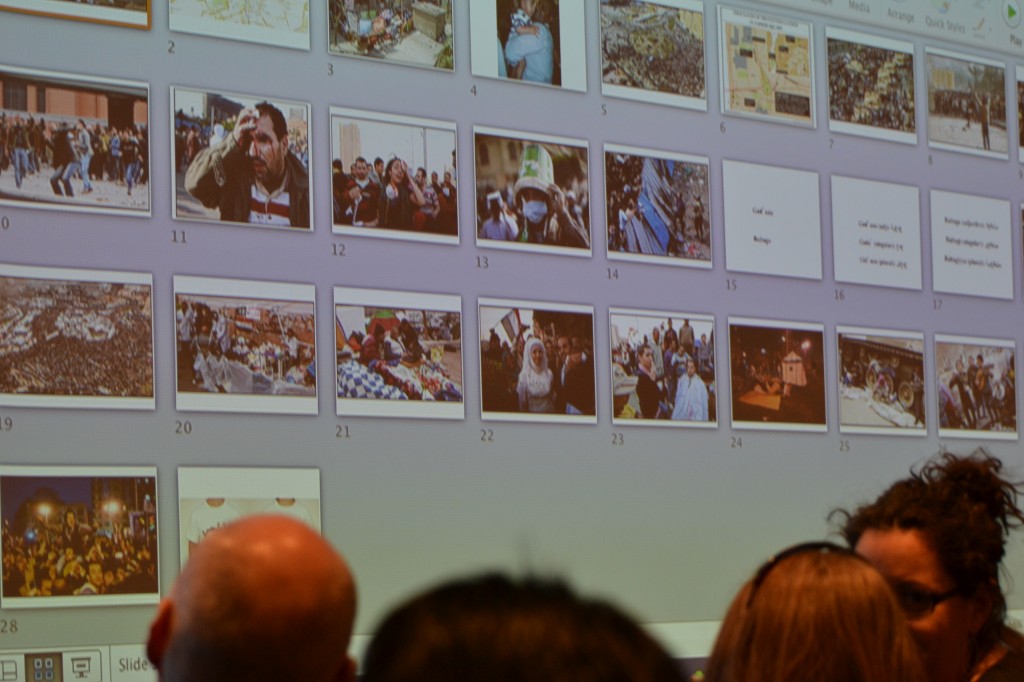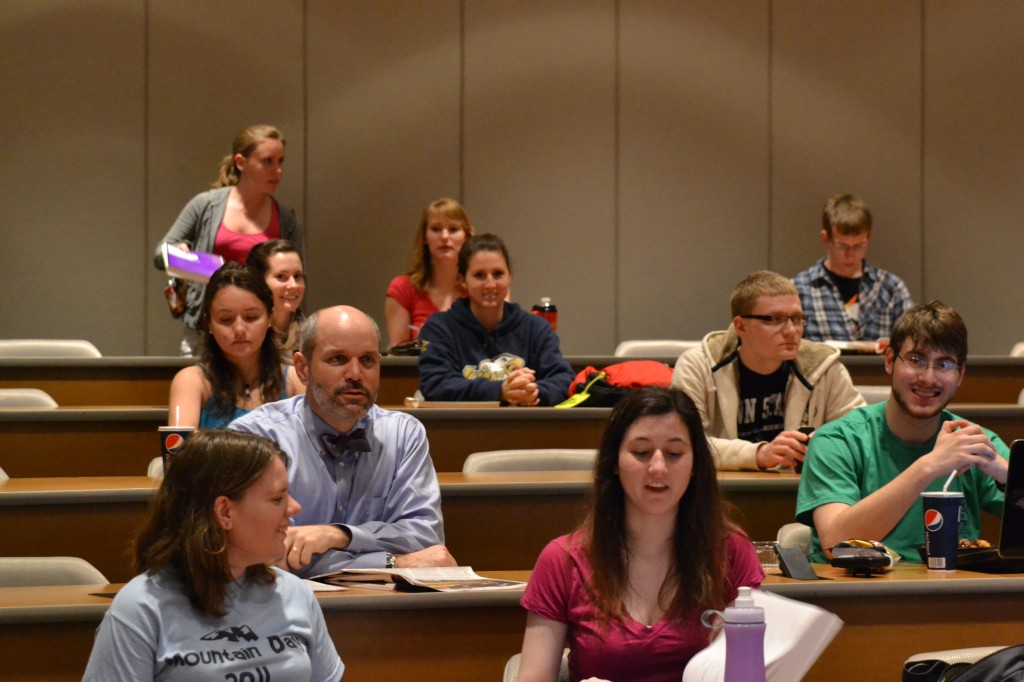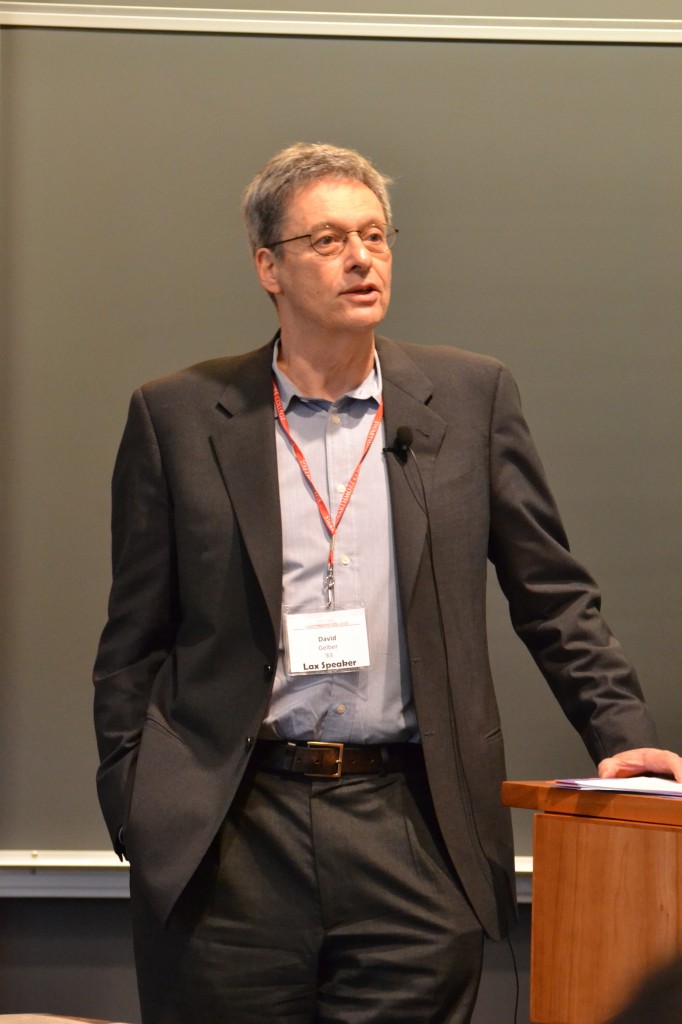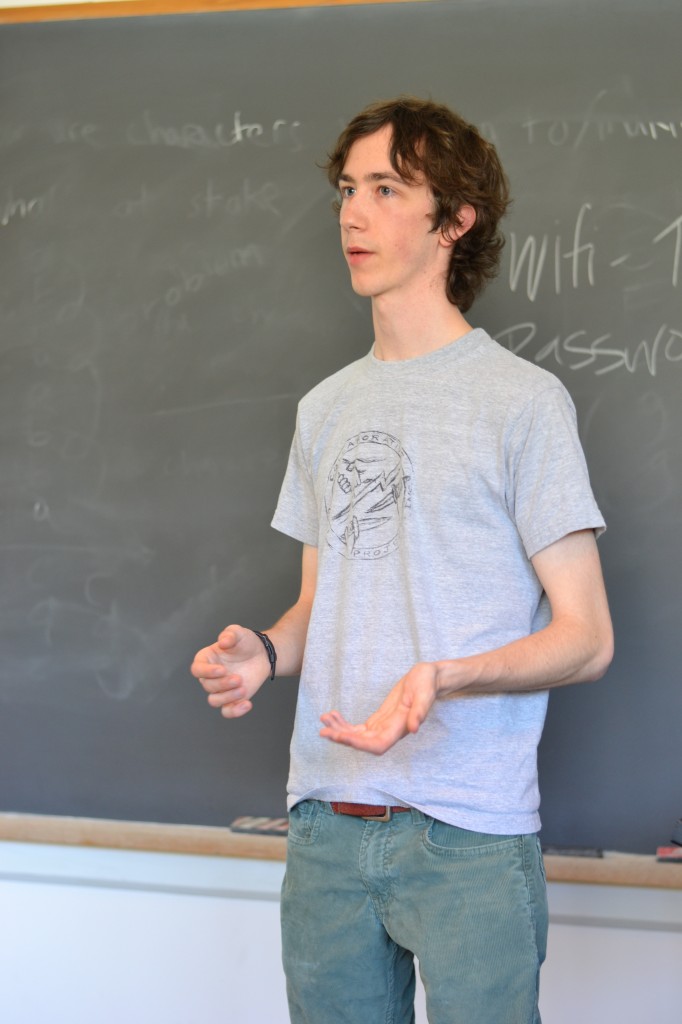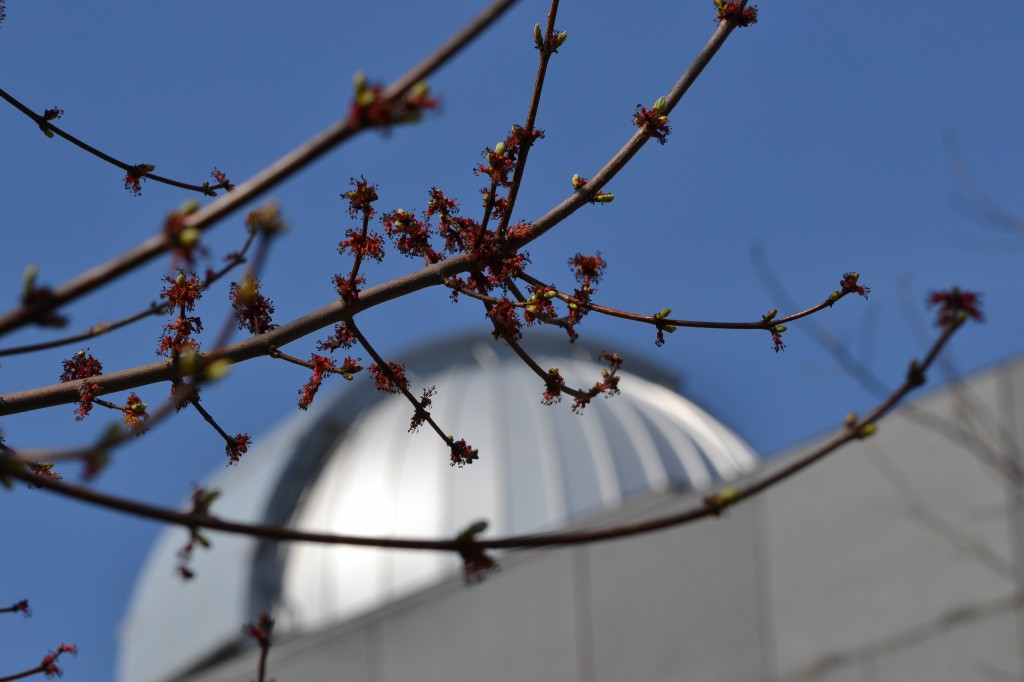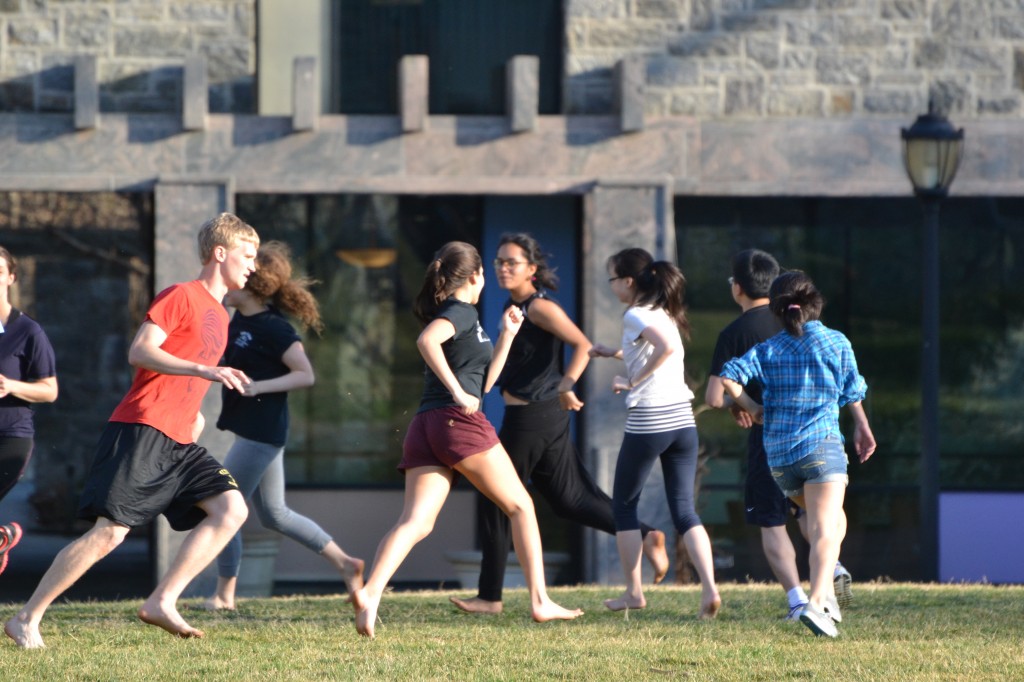We have a group of very smart, energetic, interesting students asking the college to divest from a list of fossil fuel companies. This puts me in the somewhat predictable situation of being the guy who fought for a cause when I was a student that I’m against as a middle-aged member of the establishment. Well, not exactly: I’m supportive of the goal (break the hold of big energy companies over the economy and over our political system). Just as the people who hesitated to divest from firms doing business in South Africa were strongly opposed to apartheid.
——–
I’ve been thinking back to my involvement in divestment when I was in college. Now, keep in mind that I was always a trial to some of my fellow activists. I was one of two students elected as a liason to the Investments subcommittee of the Board of Trustees, along with a guy who eventually went on to be a Rhodes scholar and who is presently a prominent businessman in South Africa. At one point we went into a meeting to deliver the demands of a crowd of protesting students outside and I came out and ambiguously said to the crowd, “Well, they’re kind of good folks and they sort might try to meet a few of our demands and I don’t know, maybe we can’t expect much.” Way to get the crowd fired up, right?
But as I think back to the divestment movement, I think we got some things right, some things wrong, and some things none of the above. What we got right was that the international campaign to isolate and taint South Africa’s government played an important role in bringing about the end of apartheid. (The other main factor, in my view, is the internal uprising after 1976 that made the townships ungovernable. With a side helping of the impact of the battle at Cuito Cuanavale in 1987-88.)
On the other hand, what we got wrong was the importance of our particular objectives (forcing institutional divestments from firms involved in South Africa, with the possible outcome of forcing American companies to disinvest from South Africa). We understood the history of South Africa and apartheid quite well, and were particularly influenced by the rising orthodoxy of radical South African social history and its argument that apartheid’s genesis lay less in a historical culture of racism and more in the functional needs of industrial capitalism following the 19th Century discovery of diamonds and gold. But the blindspots of that body of thought in the 1980s were our blindspots: the role of manufacturing capital (local and international) in that history was poorly theorized and understudied at the time, and it was largely assumed that what went for mining and agriculture went for manufacturing as well.
I came to feel very differently about that point in the course of my own graduate work on consumerism and commodification in southern Africa. But underestimating the difference between manufacturing and mining in relationship to racial capitalism was the least of our shortcomings. Many of us (myself included) didn’t really understand how institutional endowments, mutual funds, the stock market or multinational corporations worked. We didn’t spend very much time learning about any of those issues, in part because we didn’t trust our trustees and administration to educate us. And so here we also revealed our reliance on a script for activism that had been written for us by the students of the 1960s and 1970s, in which the university was either a direct enforcer of the conformist orthodoxies of American social life (and therefore a legitimate target) or was directly involved in supporting national projects like the Vietnam War (and therefore a legitimate target). By the mid-1980s, in loco parentis was completely gone, the cultural revolution on campus largely secured. And many campuses, especially those that had never been in the main pipeline of the military-industrial complex, had at least notionally embraced playing a more socially positive role in their communities. We wanted to crown ourselves in the same glory that surrounded the Boomers, and so we engaged in a form of historical re-enactment.
What exactly did we think would happen if we forced institutional buyers to sell their holdings in companies doing business in South Africa? We sometimes believed this would pressure those companies to leave South Africa, and would somehow therefore put an unspecified pressure on capitalism more generally. I don’t think most of us understood that “leaving” in this context often involved selling a bare-majority stake in a multinational to a local holding company while retaining a 49% share. Or that leaving might in a few cases really mean leaving lock, stock and barrel–and if so, that capital flight might pose its own problems for post-apartheid South Africa someday. The Sullivan Principles probably got more US companies to leave than divestment did, for all that we liked to mock them then as weak and pro-corporate. (Honestly, I think few of us believed a post-apartheid South Africa was imminently possible, any more than it seemed possible in 1985 that the Berlin Wall would fall four years later.) I don’t think we even really understood exactly how our university handled its investments, or what it expected from them–at a time when endowment income was really beginning to be an important part of operating budgets in higher education. I think we expected most crucially that divestment was a way to express moral disgust with South Africa that went beyond just saying so, that it put our institutional money where our mouth was, made speech meaningful. In that sense, if we’d been convinced that it could lose the university a small fraction of its expected return, we might well have seen that as making the sentiment even more powerful, that sacrifice showed seriousness of intent.
What really made the difference in putting international pressure on South Africa? Divestment, I think, was the least important tactic. Its main significance was that it allowed many young people who wanted to show a disdain for apartheid to do so in the most conveniently local setting and therefore to make the revulsion for apartheid more powerfully global. More important by far in terms of making that revulsion felt within South Africa was the sports boycott. I remember some activists I knew seeing that as trivial, but that just showed how little we understood the mass psychology of South Africans. American college students building shantytowns was easy to sneer at, but not being allowed to play rugby abroad? Shit got real at that point.
As far as bringing real pressure to bear on South African politicians and businessmen? After 1985, U.S. and European banks began to restrict or call due loans to South Africa, or at least gave serious consideration to such action. They did so a little because of pressure from activists, but largely this was a result of their judgment that South Africa was increasingly a bad credit risk because of apartheid. (Back in the days when banks still cared about such things.) Now, mind you, the attempt to produce disinvestment through divestment was one of the thumbs on the scale that made that assessment seem more credible. But really, at least in my group of activists and some of the other college networks that I knew about, the banks were less in our sights than our own university endowments. Nor would we have known how to talk the language that would have helped us convince the banks that South Africa was a bad risk.
In the end, divestment was a huge effort that sucked up most of the air in the activist scene of the 1980s (the other big causes that I remember were resisting draft registration, demanding a nuclear freeze, and generally opposing the Reagan Administration). For all that effort, we ended up with relatively little to show for it: often a grudging, late agreement to a one-time, one-case divestment from companies defined by incredibly restricted criteria. No continuing anti-racist campaign, no continuing attention to the question of what made for socially responsible capitalism (if indeed we were prepared to allow that such a thing could exist), and really no continuing attention to South Africa itself, which dropped off the map of things-to-care-about in 1993 except for people like me who had become so fascinated by the place itself that we went on to study it. We did manage to leave behind us a sort of ghost remnant of moral distaste for things South African–I still run into people who think you’re not supposed to buy South African wine, or who instantly regard a white person speaking with a South African accent as ipso facto racist.
————
So to today’s divestment campaign. As in our case, I think it’s partially a consequence of looking for a strategy which will allow campus activists to work collectively but doesn’t require extensive day-to-day coordination across multiple institutions. I also think like our campaign in the 1980s, it’s about aiming at the most convenient, available target, knowing that campus administrators are obligated to listen and respond to student demands in a way that the more distant targets–fossil fuel companies–are not. But even the biggest university with the most fossil-fuel friendly researchers is really not the soft underbelly of the energy sector. Let’s assume that most universities and colleges could be persuaded to divest from the 20 worst-acting energy corporations. That might be a useful step towards morally tainting them, which might in turn be a useful step towards shifting some kind of political consensus. Is it the most efficient or powerful step towards producing that moral taint? I don’t really think so. It’s just the one that college students see as being most readily available to them in the four years they’ll be enrolled.
Will divestment actually produce financial pressure on those companies? Not really, unless it succeeds in depressing their stock prices. In the 1980s, even that might not have made any difference, but today more executives have more of their compensation tied to stock price. That might actually hit some of them where they live. On the other hand, I am not a lawyer, but I’m guessing setting out to deliberately suppress the value of particular stocks through collective action is probably a federal crime. Moreover, If I were going to try and make a case that some fossil fuel companies are bad risks in the medium-term, I don’t think I’d have to resort to something as elaborate as getting institutions to divest to do it.
I’m tempted to write off my own criticism as an example of the conservatism of age, that I’m defending my own interests. That kind of skepticism about action isn’t just self-centered, however. It’s also that over time you come to see a different side of institutions. The longer you inhabit one, the more you understand what their long-term trajectories look like, the more you can imagine a thing which has lived on for centuries and wants to live for centuries still. That perspective can be the source of fatal complacency, a deafness to new ideas and energy. It’s not enough to just say that you’re looking out for the long-term fiduciary health of an institution: that can lead to stasis and death. The four-year turnover of students, however, often makes it impossible for them to see the whole institution over time or to feel viscerally connected to plans and projects whose outcome will be deferred years, even decades, after they are involved.
If the issue at hand is both something that can change rapidly and that a college or university can rightfully be held directly accountable for, then there’s no reason to be deterred by someone invoking long-term interests. Student activists should be demanding the embrace of open-source publishing (with a potentially huge impact on social justice at a global scale), they should be targeting the mistreatment of adjunctified teaching, they should be staging sit-ins at the offices of state legislators who are slashing education budgets, they should be fighting the advance of standardized testing, and they should be asking sharp questions about how higher education plays a role in growing income inequality in the United States. There are issues at hand where change is possible and higher education has a direct share of involvement.
If we’re talking climate change or environmentalism, on the other hand, the really radical or daring ideas aren’t short-term ones. I’d be much more motivated by a plan to take Swarthmore College as much off-the-grid as possible by 2030. Sure, that’s about when I’ll retire, but if we started moving in that direction steadily I could expect to see many impacts to my working life: much more attention to energy usage, much more mindfulness about our material practices. That’s already part of our local sustainability campaigns, and to be honest, I think it’s often small-potatoes stuff that doesn’t sum to that much. Where it might get real is the construction of alternative-energy infrastructure on campus, some of it at the expense of other things we might build or landscape we might want to preserve. That part of the idea can’t be faulted for conservatism, at any rate. If I wanted to come up with something that might scare fossil-fuel producers, I think a national movement by institutions and organizations and building owners to go as off-grid as possible would be considerably more threatening than a complex, indirect campaign to morally taint them.
For students–or anyone needing to feel that the urgency of their cause is matched to a potentially rapid return of results–this kind of vision may lack appeal. Or seem, as the Sullivan Principles and similar propositions seemed in the 1980s, to be a delaying tactic intended to wait until the activists grew tired and switched to another cause.
Only, you know, Leon Sullivan stuck with it, and in the end, made a major and lasting contribution to global campaigns for socially responsible capitalism.

